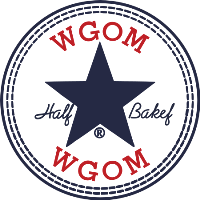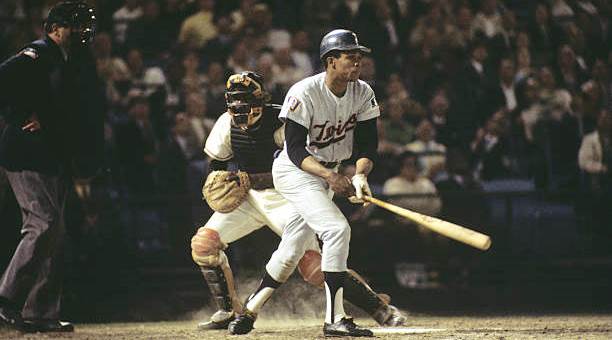MINNESOTA 4, BALTIMORE 3 IN MINNESOTA (10 INNINGS)
Date: Friday, August 1.
Batting stars: Rich Reese was 2-for-4 with a triple and a walk. Leo Cardenas was 2-for-4 with a triple and a walk. Harmon Killebrew was 2-for-4 with a double and a walk. Cesar Tovar was 2-for-5 with a double and a stolen base, his twenty-fifth. Bob Allison was 1-for-2 with a home run (his fifth) and a walk.
Pitching star: Ron Perranoski pitched four shutout innings, giving up three hits and striking out one.
Opposition stars: Paul Blair was 2-for-5 with a two-run homer, his twentieth. Brooks Robinson was 1-for-4 with a home run, his sixteenth. Ed Watt struck out two in two shutout innings, giving up one hit.
The game: The Twins got a hit batsman and three walks in the first inning but failed to score, partly because Rod Carew was caught stealing and partly because they did not get any hits. The Twins again loaded the bases in the second on a single, an error, and a walk, but again did not score. They finally broke through in the third when Killebrew doubled, went to third on a fly to right, and scored on a Johnny Roseboro sacrifice fly to take a 1-0 lead. Even so, the Twins managed to leave the bases loaded for the third consecutive inning, as Tovar doubled, Cardenas and Dean Chance walked, but none of them crossed home plate.
Robinson's homer in the fifth tied it 1-1. The Twins got the lead back in the bottom of the fifth when Reese hit a leadoff triple and scored on another sacrifice fly by Roseboro. The Orioles got the lead for the first time in the sixth when Marcelino Lopez walked and scored on Blair's two-run homer. The Twins tied it again in the bottom of the sixth when Allison led off with a pinch-hit home run, making the score 3-3.
The Twins got a pair of singles in the seventh and Baltimore got a pair of singles in the tenth, but they led to nothing. In the bottom of the tenth, Cardenas hit a one-out triple. Intentional walks to Allison and Charlie Manuel followed. Rod Carew then hit an infield single to win the game for the Twins.
WP: Perranoski (7-5). LP: Dave Leonhard (6-4). S: None.
Notes: Ted Uhlaender started the game in left, but came out of the game in the seventh as part of a double switch, with Allison staying in the game in left.
Carew was 1-for-4 and was batting .371. Tony Oliva was 0-for-4 and was batting .324. Reese raised his average to .319.
Chance started and pitched 5.1 innings, giving up three runs on two hits and four walks and striking out two. His ERA was 2.72. Perranoski lowered his ERA to 1.73.
Elrod Hendricks was the starting catcher, but was replaced five batters into the bottom of the first by Clay Dalrymple. One assumes he either was injured or was not feeling well.
Baltimore starter Jim Hardin pitched 2.2 innings, giving up one run on three hits and six walks and striking out none.
The Twins stranded the maximum, nine, in the first three innings. It's got to be rare to leave the bases loaded in three consecutive innings, especially the first three innings of the game.
Hardin came out of the game after walking Chance in the third to load the bases. Chance was well-known as a terrible batter--he had only one hit in twenty-four at-bats in 1969. This was one of two walks he drew on the season. Presumably Earl Weaver thought that if you can't throw strikes to Chance, you have no business remaining in the game.
Chance also walked his opposite number, Marcelino Lopez. It hurt him, as Blair followed with the home run that gave the Orioles the temporary lead.
The decision to give intentional walks to Allison and Manuel to bring up Carew is interesting. I don't mean to imply it was wrong, just that it's interesting. There aren't a lot of good options when you have the deciding run on third with one out. Walking Allison to set up the double play makes perfect sense. I'm not sure I'd have walked Manuel to get to Carew, though. Both Manuel and Carew were left-handed batters, so there was no platoon advantage gained. It sets up a force play at any base, but you've still got to either get the force at home or get a double play, and Manuel would seem a much easier batter to double up than Carew. Add in the fact that Manuel was batting .250, over one hundred points lower than Carew. Again, there were not really good options at this point, but I think I'd have taken my chances with Manuel.
Record: The Twins were 65-40, in first place in the American League West, 3.5 games ahead of Oakland.


Yeah, I'm with you. Not only is Carew a better bat-handler, he's also faster. Take your chance with Manuel. Put the corners in for a possible play at the plate on a chopper. Keep the middle infielders back for a potential double play. Maybe Manuel pops up or strikes out.
Not sure who the closer is and if he was a good ground ball pitcher, but even with Baltimore's outstanding infield those aren't odds I'd take against Carew
The Orioles' closer was Pete Richert. Dave Leonhard started the inning and gave up the triple to Cardenas. He stayed in to give the intentional walks to Allison and Manuel. The Orioles then brought in Richert to face Carew.